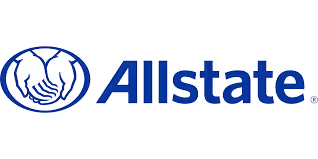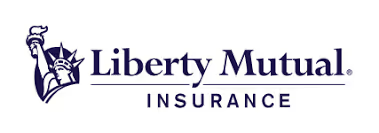






5-Star Valuation Services, Loved by Hundreds
Defensible appraisals for any legal or tax need.
Rather than relying on a single lead appraiser or fixed team, we maintain an extensive network of credentialed specialists, each with deep expertise in particular asset types and valuation purposes. This enables us to match every engagement with the right expert while delivering exceptionally fast turnaround times, even under the most demanding deadlines.
When you require a defensible appraisal you can trust, AppraiseItNow delivers.


Easy & Fast Online Appraisal Process
Our unique model allows us to meet super tight deadlines for tax filings, court dates, internal company project timelines.

Industry-Leading Appraisal Speed
Our unique business model means that we always have a credentialed appraiser available to work on your project, and we can meet obscure and short deadlines for tax filings, court submissions, internal projects, and more. Even if that means preparing your appraisal within 24 hours!

Any Asset Covered
This means that we can appraise any type of item including furniture, artwork, jewelry, business inventory, machinery & equipment, cars, boats, and more!

Servicing Enterprises & Individuals
Our company services anyone from an individual with a single couch to an enterprise needing contents of multiple offices or warehouses appraised.

Defensible for Any Purpose
Frequently Asked
Questions
No Frequently Asked Questions Found.
The claim process involves multiple intricate stages that require careful documentation and communication. Initially, the policyholder must promptly notify their insurance provider about the incident, providing comprehensive details and supporting evidence. This early communication establishes the foundation for a potential settlement.
Documentation plays a pivotal role in substantiating the claim's legitimacy. Policyholders must gather relevant materials such as photographs, receipts, official reports, and witness statements that comprehensively demonstrate the extent and circumstances of the loss. These materials serve as critical evidence during the insurance company's investigation.
Following notification, a claims adjuster will thoroughly review the submitted documentation, assess the incident's details, and determine the claim's validity based on the specific policy's terms and conditions. This professional evaluation ensures that the claim aligns with the agreed-upon coverage parameters.
The resolution phase involves the insurance company's decision to approve, deny, or negotiate the claim's compensation amount. If approved, the insurer will issue payment to the policyholder or directly to service providers, helping restore the financial position of the affected party.
Successful claims management requires precision, timeliness, and transparent communication. Policyholders who understand this process and maintain meticulous records significantly improve their chances of receiving fair compensation during challenging circumstances.
Professional appraisals deliver precise valuations that go beyond surface-level assessments. Certified appraisers meticulously evaluate property, considering nuanced factors like condition, market value, and specific characteristics that significantly impact overall worth. This detailed approach ensures policyholders receive fair and accurate compensation that truly reflects their property's value.
Documentation is another fundamental aspect of insurance claim appraisals. The formal assessment creates an authoritative record that serves as a critical reference point for both the policyholder and insurance company. This comprehensive documentation helps eliminate ambiguity, reduce potential disputes, and provide clear evidence of the property's condition and value at the time of loss.
Expert appraisers bring specialized knowledge that transcends typical property evaluation. Their professional insight allows for in-depth analysis of complex assets, whether it involves specialized items like vintage collectibles, intricate jewelry, or unique property types. This expertise becomes particularly valuable when standard assessment methods prove insufficient.
The appraisal process also expedites claim resolution by presenting a clear, professionally validated valuation. By providing a transparent and detailed assessment, policyholders can streamline negotiations and reduce potential delays or conflicts with insurance providers.
Moreover, these professional evaluations serve as a strategic tool if claim disputes arise. Should an initial claim be denied or undervalued, a comprehensive appraisal provides robust evidence to support an appeal, potentially reversing unfavorable initial determinations.
Beyond immediate claim resolution, appraisals offer broader insights into potential coverage gaps. During the evaluation process, appraisers might identify nuanced damage or underinsured aspects of a property, empowering policyholders to make more informed future insurance decisions.
Ultimately, a professional insurance claim appraisal transforms an potentially stressful situation into a methodical, transparent process. By leveraging expert assessment, policyholders gain confidence, clarity, and a strategic approach to navigating complex property loss scenarios.
The valuation methodology encompasses multiple sophisticated approaches, each tailored to reveal different dimensions of a business's economic potential. The income approach examines anticipated future cash flows, discounting them to present value and revealing the business's potential earnings capacity. The market approach compares the enterprise against similar businesses in recent transactions, providing context through real-world market dynamics. The asset-based approach evaluates the company's net asset value, offering a fundamental perspective on its tangible worth.
Professionals conducting these appraisals meticulously analyze financial statements, historical performance records, market positioning, and forward-looking projections. They synthesize complex financial information into a comprehensive report that articulates not just a numerical value, but a strategic narrative about the business's economic potential and structural strengths.
The significance of a Business Valuation appraisal extends far beyond a single monetary figure. It serves as a critical tool for strategic decision-making, facilitating informed choices during potential mergers, acquisitions, internal restructuring, and long-term business planning. Stakeholders—including owners, investors, lenders, and potential buyers—rely on these evaluations to understand a company's true economic landscape and potential trajectory.
By providing an objective, rigorous assessment of a business's value, these appraisals transform complex financial data into actionable strategic intelligence, empowering business leaders to make more informed and confident decisions.
The online valuation process typically involves submitting critical business documentation electronically, such as financial statements, tax returns, and operational agreements. Appraisers rely on these digital submissions to develop a detailed understanding of the business's financial health and market positioning.
Advanced technology enables interactive consultations through video conferencing platforms, allowing real-time communication between business owners and professional appraisers. These virtual meetings facilitate comprehensive discussions, immediate clarification of questions, and thorough examination of business details.
Remote valuation approaches offer significant advantages for business owners, particularly those with complex schedules or located in areas with limited access to specialized appraisal services. The digital format provides flexibility, reducing logistical challenges and minimizing operational disruptions.
Professional online appraisals maintain rigorous standards, ensuring that remote assessments are equally credible and thorough as traditional in-person evaluations. Appraisers utilize sophisticated analytical tools and methodologies to generate precise, comprehensive valuation reports that meet industry benchmarks.
By leveraging digital platforms, businesses can obtain professional valuations more efficiently, accessing expert insights without geographical constraints or extensive time commitments.
Certified Business Appraisers possess comprehensive training in valuation methodologies, focusing on delivering precise assessments for small to mid-sized enterprises. Their rigorous certification ensures adherence to professional standards across various valuation scenarios, including mergers, acquisitions, and financial reporting.
Accredited Senior Appraisers represent highly experienced professionals who handle more complex valuation assignments. These experts typically engage with larger businesses, private equity firms, and institutional investors, providing nuanced analysis that goes beyond standard financial assessments. Their deep understanding of market dynamics allows for intricate valuation approaches.
Chartered Business Valuators, primarily recognized in Canada, bring specialized regional expertise to business assessments. Their comprehensive training encompasses detailed understanding of local economic environments, making them particularly valuable for region-specific valuation needs. These professionals excel in areas like estate planning, litigation support, and regulatory compliance.
International valuation specialists offer unique capabilities in navigating cross-border business assessments. Their expertise spans multiple economic frameworks, enabling accurate valuations for multinational corporations and complex global business structures. These professionals understand intricate market trends and regulatory differences across international boundaries.
Financial analysts contribute another perspective to business valuation, leveraging extensive financial data and market intelligence. While not traditional appraisers, they provide critical investment-focused insights that complement more comprehensive valuation methodologies.
Each valuation professional brings distinctive skills and perspectives, ensuring businesses can obtain accurate, contextually appropriate financial assessments tailored to their specific requirements.
Financial planning becomes significantly more strategic with an accurate business valuation. Tax considerations, ownership transitions, and potential sale scenarios become clearer when a business's true economic value is definitively established. Owners gain the ability to make data-driven decisions that protect their financial interests and optimize their business's market positioning.
In merger and acquisition contexts, a professional valuation becomes an essential negotiation instrument. Buyers can validate investment potential, while sellers can confidently justify their asking price. The appraisal serves as an objective benchmark, reducing uncertainty and potential conflicts during complex business transactions.
Financing opportunities expand when businesses can demonstrate a credible, professionally determined value. Lenders and investors view comprehensive valuations as indicators of transparency and financial maturity. This documentation can facilitate more favorable lending terms and attract potential investment partners.
Legal proceedings often require precise business valuations, particularly during partnership disputes, divorce settlements, or estate planning. An authoritative appraisal provides an unbiased, defensible assessment of a business's worth, helping to resolve complex financial negotiations and ensure equitable outcomes.
Insurance considerations also benefit significantly from accurate valuations. Understanding a business's true economic value ensures appropriate coverage levels, protecting against potential financial losses from unexpected events or catastrophic circumstances.
Ultimately, a business valuation transcends mere numerical assessment. It represents a strategic tool that empowers business leaders to navigate complex financial landscapes with confidence, clarity, and comprehensive understanding.
Understanding Business Appraisals: An Overview
Business appraisals are essential evaluations that assess the value of a business for various purposes, including insurance claims. These appraisals consider numerous factors, such as the company's assets, liabilities, revenue streams, and market conditions. By providing an accurate valuation, businesses can ensure they have the right insurance coverage to protect their operations and safeguard against potential losses due to unforeseen events such as disasters or litigation.
In the context of insurance claims, a well-executed business appraisal helps to substantiate the value of a company's losses when filing a claim. It serves as an impartial assessment, enabling business owners to present factual evidence to insurance providers, which can expedite the claims process. Moreover, understanding the appraised value can also aid businesses in identifying areas for improvement and strategic planning, ultimately reinforcing their financial stability and risk management strategies.
The Importance of Business Appraisals in Insurance Claims
Business appraisals play a crucial role in the insurance claims process, as they provide a clear and objective valuation of a company's worth in the event of a loss. This assessment helps ensure that businesses receive adequate compensation to cover damages or losses incurred. A professional appraisal not only establishes a fair market value but also takes into account various factors such as assets, liabilities, and the overall condition of the business, which can significantly impact the claim settlement amount.
Furthermore, accurate business appraisals can help to prevent disputes between business owners and insurance companies during the claims process. When a standardized and documented valuation is available, it serves as a reliable reference point that can facilitate negotiations and speed up the resolution of a claim. Additionally, a thorough appraisal can provide the necessary documentation to substantiate the claim, ensuring that business owners are not left with unexpected financial burdens just when they are at their most vulnerable.
Moreover, obtaining a business appraisal can have long-term benefits beyond the immediate claims process. It equips business owners with a better understanding of their enterprise’s financial health and market positioning, which can be invaluable for future planning and risk management. In cases of catastrophic events, having a pre-established valuation can streamline recovery efforts and help businesses quickly return to operations, minimizing the impact of the loss on both the company and its employees.
Types of Business Appraisals Relevant to Insurance Claims
When it comes to insurance claims, understanding the types of business appraisals is crucial for accurate valuation. The most common types include the asset-based approach, income approach, and market approach. The asset-based approach focuses on the company's tangible and intangible assets, providing a clear picture of what the business owns at a specific point in time. This method is particularly useful in cases where physical properties and equipment largely contribute to the value of the business.
The income approach, on the other hand, centers on the potential earnings of the business, making it an ideal choice for service-oriented businesses. By calculating the present value of expected future cash flows, this approach helps to determine how much an investor might be willing to pay today for the business based on its projected profitability. This method not only reflects the operational health of the business but also assesses its ability to generate revenue over time, providing a comprehensive outlook for insurance evaluations.
Lastly, the market approach compares the business to similar entities that have recently been sold, allowing for a valuation grounded in real market activity. This approach assists in identifying a business’s worth based on how much similar businesses are trading for, taking into account factors such as size, location, and industry. Understanding these different methodologies empowers business owners and insurers alike to make informed decisions during the claims process and ensures that all parties are aware of the value associated with the coverage provided.
Key Terminology in Business Appraisals
Understanding business appraisals requires familiarity with several key terminologies that are fundamental to the appraisal process. One such term is 'fair market value,' which refers to the price at which a willing buyer and a willing seller would transact, assuming both parties have reasonable knowledge of the relevant facts. This concept is crucial, particularly for insurance claims, as it represents the value that can be recovered in the event of a loss and serves as a basis for determining appropriate insurance coverage.
Another important term is 'income approach,' a valuation method that focuses on a business's potential to generate revenue. This approach considers current and projected income streams, as well as necessary expenses, to ascertain the business's worth. For businesses with steady cash flow, this method can provide a defensible valuation that aligns closely with the operational realities of the organization.
Lastly, the 'asset-based approach' evaluates a business by assessing its total assets minus its liabilities. This approach is often employed for businesses that have significant tangible assets or those undergoing liquidation. Understanding these terms is essential for stakeholders in the appraisal process, as they help define the methodology used and the underlying value that a business might represent for insurance purposes.
The Business Appraisal Process: Step-by-Step
The business appraisal process typically begins with the selection of a qualified appraiser who specializes in evaluating the specific type of business in question. This initial step is crucial, as the appraiser’s expertise can greatly influence the appraisal's accuracy and reliability. Once the appraiser is chosen, they will gather pertinent information about the business, including financial statements, operational data, and other relevant documentation that provides insights into the company’s performance and market position.
Following the data collection phase, the appraiser conducts a thorough analysis using various valuation methods, such as the income, market, or asset-based approaches. Each method has its advantages, and the appraiser will select the most appropriate one based on the unique characteristics of the business and the purpose of the appraisal. This step involves critical assessments of the company's revenue generation capabilities, market conditions, and any intangible assets that may contribute to its value.
Once the analysis is complete, the appraiser compiles their findings into a comprehensive appraisal report. This report not only details the calculated value of the business but also provides an in-depth explanation of the methods used and the rationale behind the conclusions drawn. Ultimately, this document serves as a crucial tool for business owners when submitting insurance claims, as it validates the economic impact of a loss and assists in the claims process.
Factors Influencing Business Valuation
Several key factors influence business valuation, particularly during the appraisal process for insurance claims. One of the primary considerations is the company's financial performance, which includes revenue, profit margins, and cash flow. These financial metrics not only reflect the current economic health of the business but also its potential for future growth. Additionally, industry conditions, such as market demand and competition, play a significant role in determining how much a business is worth, as these factors can affect both operational capabilities and revenue generation prospects.
Another crucial element in business valuation is the tangible and intangible assets owned by the company. Tangible assets, like equipment and real estate, can be relatively straightforward to value, while intangible assets such as brand reputation, customer relationships, and intellectual property can be far more complex. The appraisal process must also account for liabilities, as outstanding debts and obligations can significantly impact the net worth of the business. Ultimately, a thorough understanding of these factors is essential for producing an accurate and effective business appraisal, particularly in the context of insurance claims.
Common Reasons for Seeking a Business Appraisal for Insurance
Business appraisals for insurance purposes are often sought after to ensure that a company's assets are accurately valued. This can be especially important following unforeseen events such as natural disasters, accidents, or theft, where businesses need to demonstrate their financial losses to insurance providers. Accurate appraisals help in establishing a fair claim settlement and protect the business from underinsurance, ensuring that it can rebuild effectively. Furthermore, understanding the true value of the business provides owners with a framework for financial decision-making and risk management.
Another common reason for a business appraisal in the context of insurance is during mergers and acquisitions. When one business intends to purchase another, an accurate appraisal is critical to determine the value of the business being acquired, including its assets, liabilities, and potential for future earnings. This assessment helps both parties navigate negotiations and can prevent disputes in the future. Moreover, for businesses that have undergone significant changes or expansion, a reassessment of their value can provide clarity on their insurance needs and help ensure that coverage aligns with their current operational status.
Preparing for a Business Appraisal: Documentation and Information Required
When preparing for a business appraisal, it's essential to gather comprehensive documentation that reflects the company's financial health and operational performance. Key documents include financial statements such as balance sheets and income statements for at least the past three to five years. Additionally, records of tax returns, cash flow statements, and accounts receivable aging reports provide invaluable insights into how the business functions and its profitability. This compilation of data not only aids appraisers in evaluating the business but also ensures a smoother appraisal process.
Beyond financial documents, appraisers may require information about the business's assets, liabilities, and market position. This includes inventory lists, descriptions of equipment, contracts, and any intellectual property that might add to the overall value. It is also beneficial to provide a narrative about the business that outlines its track record, management team, and industry trends. Such detailed context not only enhances the quality of the appraisal but also serves to highlight the unique attributes that contribute to the company's overall worth.
Choosing the Right Appraiser for Your Business
Selecting the right appraiser for your business is a critical step in ensuring an accurate and fair valuation. It is imperative to look for an appraiser with relevant experience in your specific industry, as they will understand the unique factors that could influence the value of your business. Additionally, seeking out professionals who are certified and recognized by reputable appraisal organizations can provide assurance of their expertise and adherence to industry standards.
Interviews or consultations can also help determine if the appraiser's approach aligns with your expectations. Ask potential appraisers about their valuation methodologies and how they tailor their assessments to suit different business types. By engaging in this dialogue, you can gauge their communication skills and willingness to answer questions, both of which are essential for a transparent appraisal process.
Lastly, consider the appraiser’s local market knowledge, particularly if your business properties are specific to certain geographical regions. Familiarity with local market trends can significantly influence property values and should be a key factor in your selection. A thoughtful choice of appraiser can not only facilitate a smoother appraisal process but also support your aims for accurate insurance claims and financial planning.
Potential Challenges in Business Appraisals for Insurance Claims
Business appraisals for insurance claims can present several challenges that complicate the valuation process. One significant hurdle is the accuracy of the data provided; businesses often rely on historical financial records that may not fully capture current market conditions or future growth potential. Additionally, external factors such as economic fluctuations, industry trends, and changes in consumer behavior can impact the accuracy of an appraisal, making it necessary for appraisers to conduct thorough analyses.
Another challenge lies in the diverse nature of businesses and the specific methodologies required for different industries. Each sector may have its own standard practices and metrics for valuation, which can create discrepancies. For instance, a technology startup may be assessed differently than a manufacturing company, requiring appraisers to have specialized knowledge and experience in the relevant field to achieve an equitable valuation.
Lastly, the emotional aspects surrounding business ownership may complicate appraisals during insurance claims. Business owners often have a personal attachment to their enterprises, and this sentiment can influence their perception of value. Recognizing the need for a detached, objective appraisal is essential for all parties involved, as it helps ensure a fair outcome that aligns with industry standards, financial realities, and the specific circumstances of the claim.
Case Studies: Business Appraisal Success Stories in Insurance Claims
In the world of business appraisals for insurance claims, real-life success stories often illustrate the critical role of accurate valuations. One notable case involved a small manufacturing firm that suffered significant damage from a fire. With precise appraisal data, the business was able to substantiate its claims for both property loss and business interruption, resulting in a settlement that covered not only repairs but also provided compensation for lost revenue during the recovery period. This case highlights how a thorough business appraisal can empower organizations to navigate the complexities of insurance claims effectively.
Another compelling example stems from a retail company that faced unexpected damages due to flooding. By engaging professional appraisers who understood the nuances of retail operations, the business managed to secure a valuation that reflected both physical assets and potential future earnings lost during the downtime. The process enabled the owners to present a coherent and compelling case to their insurer, culminating in a successful claim that significantly mitigated financial strain. Such cases emphasize the importance of a comprehensive assessment to ensure fair compensation in times of crisis.
Lastly, a technology startup illustrates how proactive business appraisals can safeguard against future losses. When conducting annual assessments, the company identified specific intangible assets, such as patented technology and customer contracts, that could quickly be impacted by potential mishaps. By documenting these assets thoroughly, the startup not only prepared itself for possible insurance claims but also enhanced its overall risk management strategy. This foresight enabled them to articulate their unique value to insurers, ultimately positioning the business for optimal outcomes in any claim scenario.
Conclusion: The Role of Business Appraisals in Risk Management and Insurance
Business appraisals play a crucial role in risk management and insurance, providing an accurate valuation of a company's worth. This valuation not only helps businesses determine appropriate coverage but also ensures they are adequately protected against potential losses. By having a professionally conducted appraisal, companies can avoid underinsurance, which can leave them vulnerable in the event of a claim, and overinsurance, which can lead to unnecessary premium costs. Thus, a thorough understanding of the business's value is essential for informed financial decision-making and effective risk management strategies.
In the context of insurance claims, a well-documented appraisal serves as a critical resource. It provides insurance providers with essential data to assess claims fairly and expediently, reducing disputes and facilitating quicker resolutions. Moreover, having a clear valuation can aid in future negotiations with insurance companies, as documented proof of value creates a solid foundation for conversations surrounding coverage and claims. Therefore, integrating regular appraisals into a business's risk management plan is not just a prudent approach but an essential aspect of maintaining financial health and security.
View all Locations
APPRAISEITNOW APPRAISERS ARE BEST-IN-CLASS & CREDENTIALED BY LEADING APPRAISAL ORGANIZATIONS LIKE THE ISA, ASA, & MORE.





















.svg)








